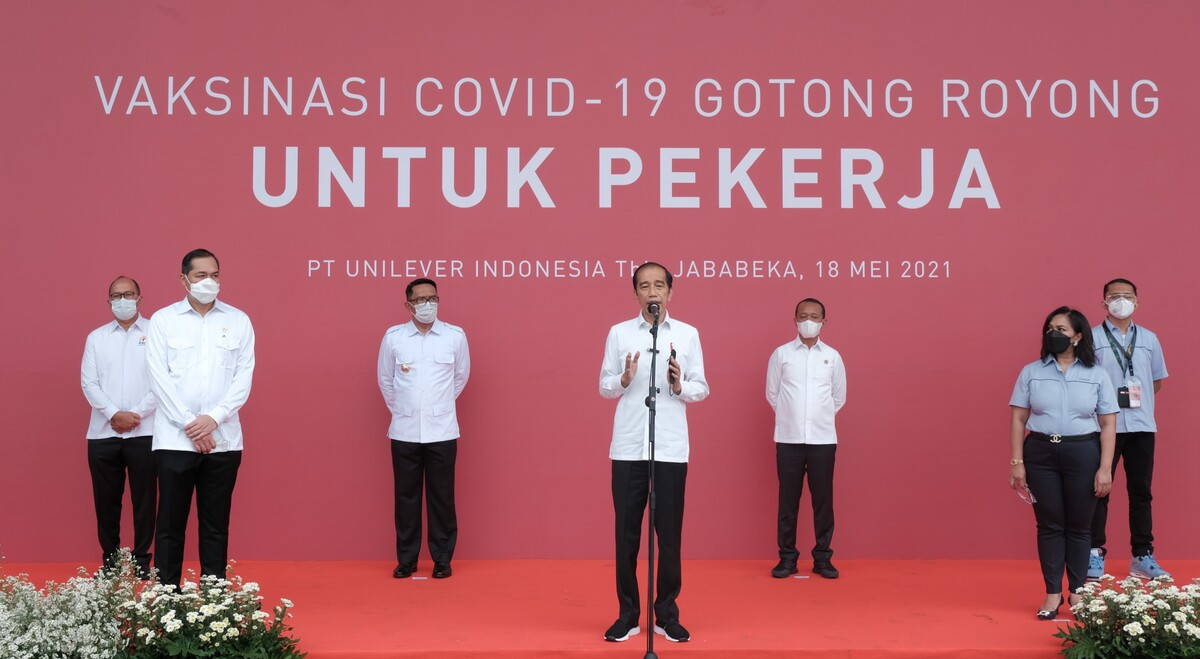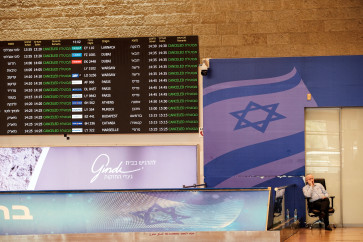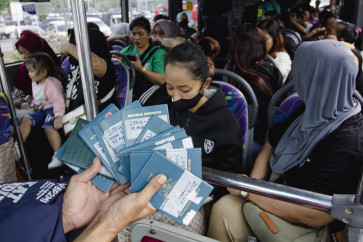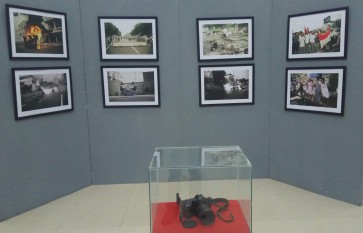Popular Reads
Top Results
Can't find what you're looking for?
View all search resultsPopular Reads
Top Results
Can't find what you're looking for?
View all search resultsCompanies begin private vaccination rollout
What is the Gotong Royong private vaccination scheme and how can companies in Indonesia make use of it in the fight against COVID-19?
Change text size
Gift Premium Articles
to Anyone

A
s delays in overseas shipments from COVID-19 vaccine producers have slowed down Indonesia’s vaccination drive, the country is confronting the question of what to do about its vaccination goals.
Indonesia is looking to inoculate about 181.5 million people, about two-thirds of the population, by March 2022. However, since the public rollout began on Jan. 13, only 9 million people have been fully vaccinated with two jabs.
A private scheme, dubbed the Gotong Royong vaccination program, was introduced and approved in March to help move things along.
Gotong royong is an Indonesian expression that translates to mutual cooperation.
The idea behind the initiative is simple: Instead of wasting crucial time in the long wait for the national vaccination program, private and state companies can procure their own supplies of vaccines to inoculate employees and their families.
When the nation officially kicked off on Tuesday the private vaccination scheme, President Joko “Jokowi” Widodo told reporters that the program was hoped to “help us achieve herd immunity [to] curb the spread of COVID-19 and eliminate the disease from our beloved country”.
“We hope that we will have inoculated 70 million people by August or September,” Jokowi said in a live-streamed press statement.
The Gotong Royong scheme will take place in tandem with the state-led vaccination program, which currently uses vaccines produced by Sinovac Biotech and AstraZeneca – although the latter only recently faced suspension of use.
The government hopes these two programs will allow the country to reach herd immunity faster and lead to a quicker reopening of the economy.
Read also: Private vaccination begins as state-led rollout slows
The scheme, explained
According to Health Ministerial Regulation No. 10/2021, all legal and business entities are welcome to join the private vaccination program.
Companies can participate directly by registering with the Indonesian Chamber of Commerce and Industry (Kadin) and filling out a form by May 21.
Every registered company will be responsible for covering the cost of vaccination and must report the number of employees and their family members participating in the program.
The private sector scheme is to use doses procured from China’s state-owned pharmaceutical firm Sinopharm, the first vaccine to be approved by the Food and Drug Monitoring Agency (BPOM) for private use, while doses from CanSino Biologics and Russia's Sputnik V would be introduced later on, Kompas daily reports.
Under the private scheme, the Health Ministry has set the maximum price per dose at Rp 321,660 and the maximum administration fee at Rp 117,910, according to a ministerial decree issued last week.
The complete two doses would cost around Rp 879,000 in total.
Read also: Private COVID-19 vaccination touted as ‘gotong royong’ effort, but can it really help?
The administrators
Kimia Farma, a subsidiary of state-owned pharmaceutical giant Bio Farma, is being tasked with distributing the vaccine to appointed health facilities under the supervision of the State-Owned Enterprises (SOEs) Ministry.
SOE Ministry spokesperson Arya Sinulingga has said that the private vaccination scheme would not impinge on the schedule or target of the national vaccination program.
“In fact, this is a parallel effort that complements and strengthens the other,” Arya said in a statement issued on the Cabinet Secretariat website.
Shinta Widjaja Kamdani, deputy chair for international relations at Kadin, told The Jakarta Post on Sunday that the chamber would also support private vaccination rollout. “Most companies participating in the scheme have accepted the price,” she said.
Firms that have signed up must submit employee data to determine the number of doses to be ordered. The data will be checked to ensure that no one already inoculated under the state-led program is enrolled. Once the orders are placed, the vaccine doses are to be distributed to the appointed health facilities.
Partnering health facilities include private clinics that have coordinated with local health agencies and are equipped with cold storage systems to safely store vaccines.
Kadin recorded as of Tuesday more than 20,000 companies that had signed up for the program.
The government, however, had decided that the private scheme would prioritize labor-intensive companies, especially those in areas deemed at high risk of COVID-19.









